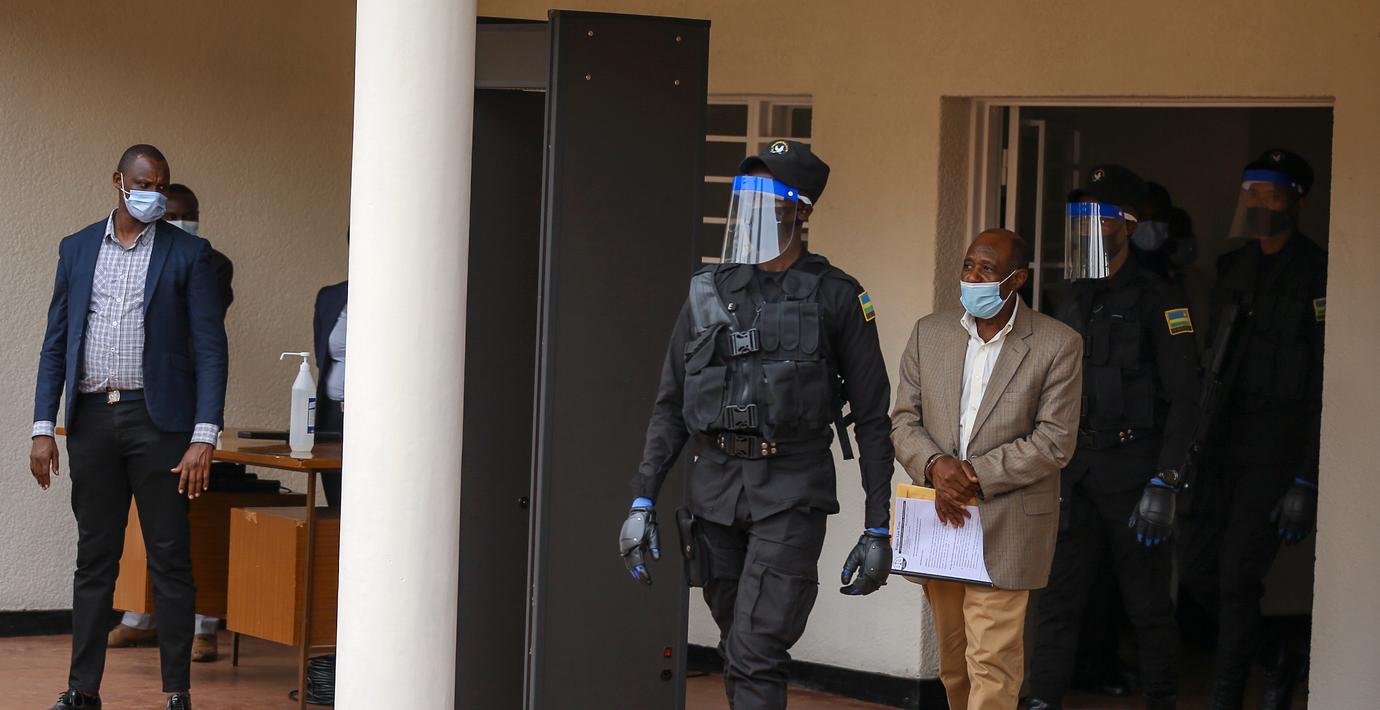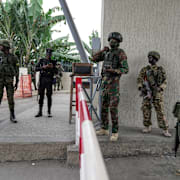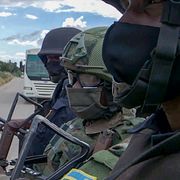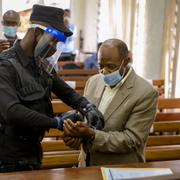
”Hotel Rwanda”-stjärnan riskerar att dömas till livstid
Den terroranklagade Paul Rusesabagina, känd för sina räddningsinsatser under folkmordet i Rwanda, riskerar livstids fängelse om han döms.
– För vissa av brotten kan han få 25 år, för andra så mycket som livstids fängelse, säger Faustin Nkusi, talesperson för rwandiska åklagarmyndigheten, enligt Reuters.
66-åringen, som är en uttalad kritiker av den sittande presidenten Paul Kagame sitter frihetsberövad sedan slutet av augusti och anklagas bland annat för att ha stött terrorattacker utförda 2018.
Rusesabagina blev världskänd genom Hollywoodfilmen ”Hotel Rwanda” från 2004 som baseras på hans insatser i inbördeskriget.
Läs mer
bakgrund
Folkmordet i Rwanda
Wikipedia (en)
The Rwandan genocide, also known as the genocide against the Tutsi, was a mass slaughter of Tutsi, Twa, and moderate Hutu in Rwanda, which took place between 7 April and 15 July 1994 during the Rwandan Civil War.In 1990, the Rwandan Patriotic Front (RPF), a rebel group composed of Tutsi refugees, invaded northern Rwanda from their base in Uganda, initiating the Rwandan Civil War. Neither side was able to gain a decisive advantage in the war, and the Rwandan government led by President Juvénal Habyarimana signed the Arusha Accords with the RPF on 4 August 1993. Many historians argue that a genocide against the Tutsi had been planned for at least a year. However, Habyarimana's assassination on 6 April 1994 created a power vacuum and ended peace accords. Genocidal killings began the following day when soldiers, police, and militia executed key Tutsi and moderate Hutu military and political leaders.
The scale and brutality of the massacre caused shock worldwide, but no country intervened to forcefully stop the killings. Most of the victims were killed in their own villages or towns, many by their neighbors and fellow villagers. Hutu gangs searched out victims hiding in churches and school buildings. The militia murdered victims with machetes and rifles. An estimated 500,000 to 1,000,000 Rwandans were killed, about 70% of the country's Tutsi population. Sexual violence was rife, with an estimated 250,000 to 500,000 women raped during the genocide. The RPF quickly resumed the civil war once the genocide started and captured all government territory, ending the genocide and forcing the government and genocidaires into Zaire.
The genocide had lasting and profound effects on Rwanda and neighbouring countries. In 1996, the RPF-led Rwandan government launched an offensive into Zaire (now the Democratic Republic of the Congo), home to exiled leaders of the former Rwandan government and many Hutu refugees, starting the First Congo War and killing an estimated 200,000 people. Today, Rwanda has two public holidays to mourn the genocide, and denial or historical revisionism of the genocide is a criminal offence.
Omni är politiskt obundna och oberoende. Vi strävar efter att ge fler perspektiv på nyheterna. Har du frågor eller synpunkter kring vår rapportering? Kontakta redaktionen



